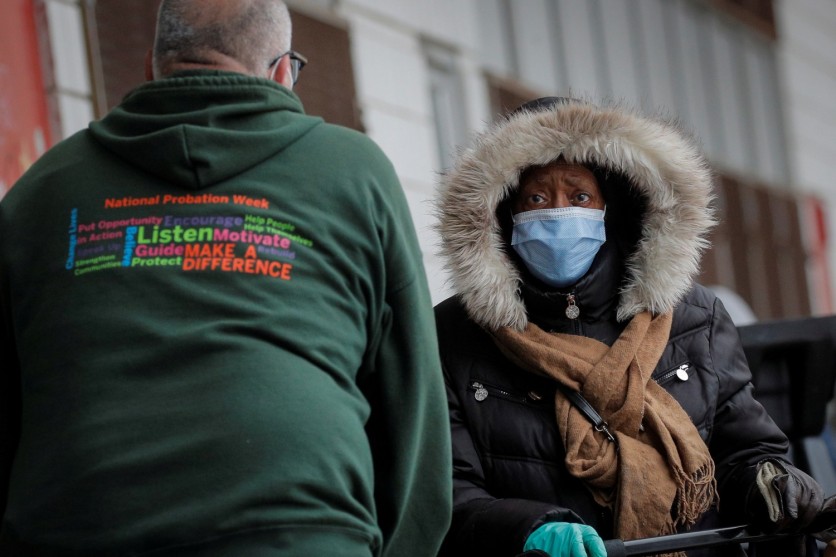Some Americans are hoping for a natural reprieve to social distancing as the coronavirus pandemic drags on. Several studies claim sunnier, warmer, more humid climate, and UV lights will eliminate the COVID-19 virus, just like what it does with flu.

However, the heat, humidity, and light help slow the virus spread, sunny, hot, and humid climate alone won't be sufficient to stop the epidemic. Experts factor to the examples of Ecuador, Louisiana, and Singapore, where COVID-19 cases continue to grow despite temperatures hitting 80-plus degrees Fahrenheit at most.
Reports say high levels of heat, UV light, and humidity can help prevent more extensive infections of the flu or colds in the summer season. But the COVID-19 coronavirus remains new to humans; hence, scientists continue to scramble in creating vaccines to protect people from such viruses.
"For the novel coronavirus SARS-CoV-2, we have reason to expect that like other coronaviruses, it may transmit somewhat more efficiently in winter than summer, though we don't know the mechanism(s) responsible," Marc Lipsitch, an epidemiologist at Harvard, wrote.
Hotter, more humid weather does seem to hurt the coronavirus
There are a few ways that summer weather may have an effect on coronavirus. Higher temperatures can help weaken the novel coronavirus's outer lipid layer, much like how fats melt in the heat. Humidity in the air can successfully seize virus-containing droplets that human beings breathe out, causing those droplets to fall to the ground. UV lights, which are produced more during summer, is a known disinfectant that effectively fries cells and viruses.
"There are multiple coronaviruses out there that affect our population, and many of them, if not most of them, exhibit a seasonal influence," Mauricio Santillana, the director of the Machine Intelligence Lab at Boston Children's Hospital and a researcher on the effects of the weather on coronavirus, said. He told Vox the hypothesis postulated for COVID-19 is that it will have similar behavior.
So far, the coronavirus has mostly spread in the Northern Hemisphere, where they experience winter. It's unclear if the climate is a reason for that, as data on its spread in several countries in Southern Hemisphere continues to grow.
Still, there are a few proofs. The National Academies of Sciences, Engineering, and Medicine - one of America's top medical evidence reviewers - summarized the studies earlier in April. It tested the outcomes of summer-like temperatures in a laboratory and people that tried to tease out the results of heat, UV light, and humidity in the real world.
Researchers use sophisticated tools to peer how the virus fares in particular situations. Generally, they've found that more heat, UV light, and humidity seem to weaken the coronavirus. However, one of their preliminary research found that coronavirus may fare better in more summer-like conditions than the flu, SARS, and monkeypox viruses.
As the National Academies noted, this evidence comes with massive caveats. Perhaps maximum importantly, those research haven't yet been peer-reviewed.
People also can act differently in summer than they do in winter, and the lab research doesn't account for how one's behaviors affect coronavirus's spread. People are more likely to stay indoors throughout the winter to avoid the cold. Warmth and sunshine additionally could affect the immune system, although that relationship continues to be unclear.
Scientists have yet to get more evidence on real-life seasonal consequences as the months to go by - mainly if more locations take potentially dangerous risks. "In Georgia, where they are opening back up without really any concrete measures to encourage distancing, we might be able to better evaluate how [the coronavirus] spreads in the summer months," said Angela Rasmussen, a virologist at Columbia.
Heat and humidity won't be enough to beat the pandemic - far from it
Scientists have repeatedly explained if the weather has some effect on coronavirus. They say the climate is another thing for that effect to be enough actually to halt the virus's widespread transmission.
The problem? Other elements, except the climate, play a function in the spread of diseases. In the case of coronavirus, these different elements seem to play a much more significant role than the weather.
The mayor of Guayaquil, Ecuador, where it's often eighty-plus degrees Fahrenheit, described her city's revel in with COVID-19 "like the horror of war" and "a sudden bomb falling on a non-violent town." Ecuador now has one of the worst coronavirus death tolls worldwide. That is a sign that warm, sunny, and humid climate can't make up for struggling public fitness infrastructure in a still-developing country.
Singapore, which is nearly at the equator, managed to comprise coronavirus at first; however, they have lost control of the outbreak. The challenge, it seems, is the government neglected migrant employees in its first response - allowing COVID-19 to spread in the cramped and unsanitary conditions many migrants stay in.
Meanwhile, Louisiana is struggling in coronavirus outbreak, with the fifth-most deaths per 100,000 people out of all of the states. According to experts, Mardi Gras - held on Feb. 25 - may have triggered the increase. In contrast, New Orleans saw temperatures as much as the 70s, and cases continued to climb while temperatures reached the 80s. Maybe the weather made things higher than they would be otherwise.
Even then, it's really worth acknowledging that seasons don't fully decide when the flu and colds hit. As the National Academies said, some pandemics have started in the summer season.
But, as is true in reverse, other elements besides the climate likely play a bigger position in the outbreak. So if governments and the public do the right thing through the fall and wintry weather, there's a terrific chance that there won't be a massive spike.
ⓒ 2025 TECHTIMES.com All rights reserved. Do not reproduce without permission.




